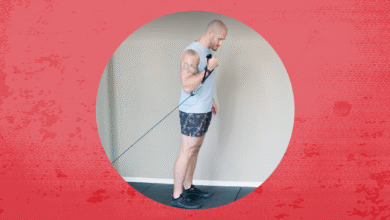Language development: Speech milestones for babies

Children learn to speak at their own pace. Development of speech, meaning how the child makes words, doesn’t happen on a tight schedule. That’s true for how well a child communicates, called language skills, as well.
Markers, known as milestones, can be a guide to how well a child is learning to talk. These milestones help healthcare professionals know when a child might need some help.
By the end of 3 months
By the end of three months, your child might:
- Smile when you show up.
- Make cooing sounds.
- Quiet or smile when spoken to.
- Seem to know your voice.
- Have cries that vary by need.
By the end of 6 months
By the end of six months, your child might:
- Make gurgling sounds when playing.
- Babble and make a range of sounds.
- Use the voice to show likes and dislikes.
- Move eyes toward sounds.
- Respond to changes in the tone of your voice.
- Notice that some toys make sounds.
- Notice music.
By the end of 12 months
By the end of 12 months, your child might:
- Try to copy speech sounds.
- Say a few words, such as “dada,” “mama” and “uh-oh.”
- Know simple commands, such as “Come here.”
- Know words for common items, such as “shoe.”
- Turn and look toward sounds.
By the end of 18 months
By the end of 18 months, your child might:
- Know names of people, objects and body parts.
- Follow simple commands that are given with hand motions.
- Say as many as 10 to 15 words.
By the end of 24 months
By the end of 24 months, your child might:
- Use simple phrases, such as “more milk.”
- Ask one- to two-word questions, such as “Go bye-bye?”
- Follow simple commands and know simple questions.
- Speak about 50 or more words.
- Speak well enough so that you or another caregiver can understand at least half the time.
After 24 months, babies’ speech builds faster than before.
When to check with your child’s healthcare professional
Talk to your child’s care professional if you’re worried that your child has a speech delay. Speech delays happen for many reasons. These include hearing loss and other developmental issues. Your child’s care professional might send your child to a hearing specialist, called an audiologist, or a specialist in speech and language, called a speech-language pathologist.
If your child hears or speaks two languages, called bilingual, a bilingual speech-language pathologist can test your child in both languages.
To help your child talk, talk to your child. Talk about what you’re doing and where you’re going. Sing songs, read stories and count with your child. Teach your child to copy things you do, such as clapping, and to make animal sounds.
Show that you’re pleased when your child speaks. Repeat the sounds your child makes. A little “baby talk” is OK. But keep in mind that your child learns to speak by copying you.
Children’s health information and parenting tips to your inbox.
Sign-up to get Mayo Clinic’s trusted health content sent to your email. Receive a bonus guide on ways to manage your child’s health just for subscribing. Click here for an email preview.
To provide you with the most relevant and helpful information, and understand which information is beneficial, we may combine your email and website usage information with other information we have about you. If you are a Mayo Clinic patient, this could include protected health information. If we combine this information with your protected health information, we will treat all of that information as protected health information and will only use or disclose that information as set forth in our notice of privacy practices. You may opt-out of email communications at any time by clicking on the unsubscribe link in the e-mail.
Feb. 19, 2025
- Kliegman RM, et al. In: Nelson Textbook of Pediatrics. 22nd ed. Elsevier; 2025. https://www.clinicalkey.com. Accessed Sept. 24, 2024.
- Communication milestones: Birth to 1 year. American Speech-Language-Hearing Association. https://www.asha.org/public/developmental-milestones/communication-milestones-birth-to-1-year/. Accessed Sept. 24, 2024.
- Communication milestones: 2 to 3 years. American Speech-Language-Hearing Association. https://www.asha.org/public/developmental-milestones/communication-milestones-2-to-3-years/. Accessed Sept. 24, 2024.
- Speech and language developmental milestones. National Institute on Deafness and Other Communication Disorders. https://www.nidcd.nih.gov/health/speech-and-language. Accessed Sept. 24, 2024.
- Speech and language concerns. Pediatric Care Online. https://publications.aap.org/pediatriccare. Accessed Sept. 24, 2024.
- Rupert J, et al. Speech and language delay in children. American Family Physician. 2023; https://www.aafp.org/pubs/afp/issues/2023/0800/speech-language-delay-children.html. Accessed Sept. 24, 2024.
See also
.



